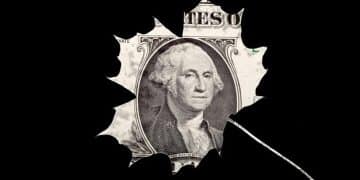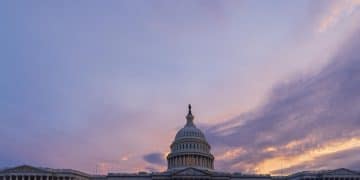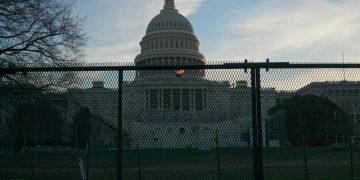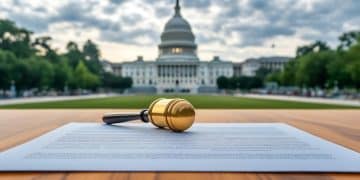Whistleblower Protection: Are Current Laws Effective?

Whistleblower protection laws aim to shield individuals who report illegal or unethical activities within organizations, but their effectiveness in preventing political wrongdoing is debated due to varying enforcement levels and loopholes.
Do current laws adequately protect whistleblowers who expose political wrongdoing, or are they still vulnerable to retaliation and suppression? The effectiveness of whistleblower protection: are current laws effective in preventing political wrongdoing? is a subject of ongoing debate.
Understanding Whistleblower Protection Laws
Whistleblower protection laws are designed to encourage individuals with inside knowledge of illegal or unethical activities to come forward without fear of reprisal. These laws vary by jurisdiction and sector, but generally aim to safeguard employees from adverse actions such as termination, demotion, or harassment when they report misconduct.
Key Elements of Whistleblower Protection
Effective whistleblower protection laws typically include several crucial elements that ensure individuals can safely report wrongdoing:
- Confidentiality: Ensuring the identity of the whistleblower is protected to prevent retaliation.
- Protection from Retaliation: Prohibiting employers from taking adverse actions against employees who report misconduct.
- Reporting Mechanisms: Establishing clear and accessible channels for reporting wrongdoing.
- Independent Investigation: Ensuring that reports are thoroughly and impartially investigated.
These elements are essential for creating an environment where individuals feel safe and empowered to report illegal or unethical activities, ultimately contributing to greater transparency and accountability.

The Role of Whistleblowers in Exposing Political Wrongdoing
Whistleblowers often play a critical role in uncovering political wrongdoing, including corruption, abuse of power, and illegal activities. Their willingness to come forward and expose such misconduct helps ensure government transparency and accountability.
Notable Examples of Whistleblowers in Political Scandals
Throughout history, numerous whistleblowers have brought significant political scandals to light, often at great personal and professional risk:
- Karen Silkwood: Exposed safety violations at a Kerr-McGee nuclear plant.
- Mark Felt (Deep Throat): Provided crucial information about the Watergate scandal.
- Edward Snowden: Revealed mass surveillance programs conducted by the NSA.
These individuals exemplify the courage and dedication required to expose wrongdoing, and their actions have had a profound impact on political and social discourse.
Assessing the Effectiveness of Current Laws
The effectiveness of current whistleblower protection laws in preventing political wrongdoing is a complex issue. While many laws are in place to protect whistleblowers, their actual impact can be inconsistent due to various factors.
Strengths of Current Whistleblower Protection Laws
Some of the strengths of current laws include:
- Broad Coverage: Many laws cover a wide range of protected activities and individuals.
- Legal Recourse: Whistleblowers often have the right to pursue legal action if they experience retaliation.
- Incentives: Some laws provide financial incentives for whistleblowers whose disclosures lead to successful enforcement actions.
These strengths provide a foundation for protecting whistleblowers and encouraging them to come forward with information about political wrongdoing.
Weaknesses and Loopholes in Whistleblower Protection
Despite these strengths, there are also significant weaknesses and loopholes in current whistleblower protection laws:
- Lack of Uniform Enforcement: Enforcement of whistleblower laws can vary widely by jurisdiction.
- Retaliation Tactics: Employers may use subtle or indirect forms of retaliation that are difficult to prove.
- Limited Coverage: Some laws do not cover independent contractors or volunteers, leaving them vulnerable to reprisal.
These weaknesses can undermine the effectiveness of whistleblower protection laws and discourage individuals from reporting political wrongdoing.
Challenges Faced by Political Whistleblowers
Whistleblowers who expose political wrongdoing often face unique challenges compared to those who report misconduct in other sectors. The political dynamics and high stakes involved can create significant obstacles.

Political Pressure and Influence
Political pressure can come in many forms, including:
- Intimidation: Attempts to silence or discredit whistleblowers.
- Legal Maneuvering: Use of legal tactics to delay or obstruct investigations.
- Media Manipulation: Efforts to control the narrative and undermine the whistleblower’s credibility.
These tactics can deter potential whistleblowers and make it difficult for those who do come forward to achieve justice.
The Personal and Professional Costs of Whistleblowing
The personal and professional costs of blowing a whistle can be substantial:
- Job Loss: Whistleblowers may be terminated or face difficulty finding new employment.
- Social Isolation: They may experience social ostracism and strained relationships.
- Emotional Distress: The stress and pressure of whistleblowing can take a toll on their mental health.
These costs highlight the importance of providing strong and effective protection for whistleblowers.
Recommendations for Strengthening Whistleblower Protection
To enhance the effectiveness of whistleblower protection laws in preventing political wrongdoing, several improvements are needed. These include stronger enforcement mechanisms, broader coverage, and greater public awareness.
Enhancing Enforcement Mechanisms
Increased enforcement is essential for ensuring whistleblower protection laws are effective. This can be achieved through:
- Dedicated Resources: Allocating sufficient resources to investigate and prosecute retaliation cases.
- Independent Oversight: Establishing independent bodies to oversee whistleblower protection.
- Stronger Penalties: Imposing significant penalties for those who retaliate against whistleblowers.
By enhancing enforcement mechanisms, the credibility and effectiveness of whistleblower protection laws can be greatly improved.
Expanding Coverage and Closing Loopholes
To provide more comprehensive protection, whistleblower laws should be expanded to cover:
- Independent Contractors: Extending protection to individuals who work on a contract basis.
- Volunteers: Including volunteers who report wrongdoing within organizations.
- Confidentiality Protections: Strengthening measures to safeguard the identity of whistleblowers.
Closing these loopholes can ensure that all individuals who report political wrongdoing are protected from retaliation.
Promoting a Culture of Transparency and Accountability
Creating a culture of transparency and accountability is essential for encouraging whistleblowing. This can be achieved through:
- Public Awareness Campaigns: Raising awareness of whistleblower protection laws and rights.
- Training Programs: Providing training to employees and employers on whistleblower protection.
- Ethical Leadership: Promoting ethical behavior and accountability at all levels of government.
By fostering a culture of transparency and accountability, more individuals will be willing to come forward and report political wrongdoing.
| Key Point | Brief Description |
|---|---|
| 🛡️ Protection Laws | Safeguard reporters of illegal activities. |
| 💼 Challenges | Political pressure can hinder whistleblowing. |
| ✅ Enforcement | Strong enforcement is key to credibility. |
| 🌐 Transparency | Promoting openness is vital for prevention. |
Frequently Asked Questions
▼
Whistleblower protection refers to laws and policies that protect individuals who report illegal or unethical activities within their organizations, ensuring they are shielded from retaliation.
▼
These laws are crucial for uncovering corruption, fraud, and other misconduct, promoting transparency and accountability in both the public and private sectors.
▼
Whistleblowers often encounter retaliation, including job loss, harassment, and social isolation, as well as legal and financial burdens in defending their actions.
▼
Improvements include stronger enforcement, expanded coverage, increased confidentiality, and greater public awareness of whistleblower rights and protections.
▼
Coverage varies, but generally includes employees of public and private organizations, with some laws also extending to contractors, volunteers, and other individuals reporting misconduct.
Conclusion
While whistleblower protection laws play a vital role in exposing political wrongdoing, their effectiveness is contingent on robust enforcement, comprehensive coverage, and a supportive culture that values transparency and accountability. Strengthening these laws and addressing existing loopholes is essential for ensuring that whistleblowers are adequately protected and encouraged to come forward with critical information.





